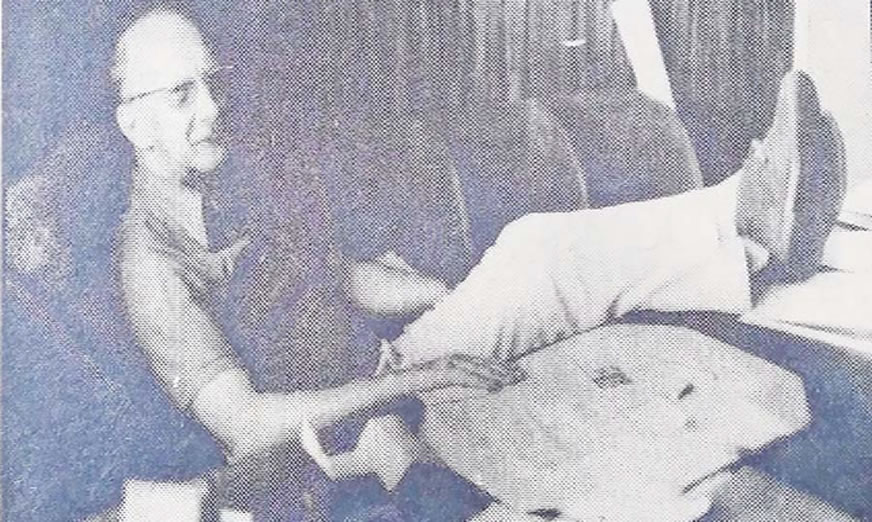ON his last day in office, Bill Cruickshank, a former Suva City administrator, suggested that city councillors should get annual allowances.
The report in The Fiji Times on October 27, 1979, said he suggested councillors get an allowance of $1000 and the size of the council be cut from 20 to 12 members.
Mr Cruickshank said the allowance would address issues councillors had over meal voucher and transport claims.
The council, he said, was leaner and streamlined; staff morale was good and about $250,000 was in its bank account.
Mr Cruickshank left the incoming council with a draft 1980 budget, accounts updated to September 30, and a report covering the first nine months of the council’s affairs that year.
When the incoming mayor opened one of the drawers in the mayor’s office, he was to find a newspaper article cutting headed: Rates — the Safeguard of Democracy. Mr Cruickshank, a company director and a former Fiji postmaster-general, was appointed city administrator in October 1977, after government sacked the then-elected council for mishandling Suva’s affairs.
Since then the council’s labour force had been pruned, the accounts department reorganised, overdraft problems fixed and defaulting ratepayers chased up.
One reason for the past problems, he said, was that previous councillors had been “too involved in the daily running of the council’s services, and this had resulted in the staff, professional and otherwise, becoming a little confused as to where they were going and what was happening”.
This was why he favoured a 12-man council, which would be much more business like.
He said city councillors deserved an annual allowance of about $1000 to cover everything, because “a councillor’s life was not an easy one”.
“He is a volunteer, works in his own time, meetings go late into the night and he has meal and transport problems,” Mr Cruickshank said.
“It seems wrong that he should depend on meal vouchers and inadequate transport arrangements.”
The last council’s handling of meal and transport allowances attracted fire from a government committee appointed to investigate it.
Mr Cruickshank, whose term as administrator expired the previous night (October 26, 1979), refused to offer advice to the new council.
“I would not want to push anything down anybody’s throat. “All I say is give the citizens a fair deal.”
Meanwhile, Suva voters were to elect a new council after a two-year administration run by a government appointed three–man council.
The Minister for Urban Development dismissed the last council in October 1977 after a committee of inquiry appointed by the government reported serious mismanagement of the council’s affairs by the Alliance-run administration.
With voting due to begin at 7.30am, thousands of voters were expected to go to the polls.
Both the Alliance and National Federation parties kept up their low-key campaigns for the majority of those voters.
The candidates who continued their house to house campaigns said voters had shown a strong interest in the election.
Alliance parliamentarian Jone Banuve said his party had assigned at least 20 cars and several buses to each of the polling stations to bring voters from their homes to vote.
“I hope there will be a large turnout,” he said. “But past elections have shown that only 60 per cent of people do come in to vote.”



